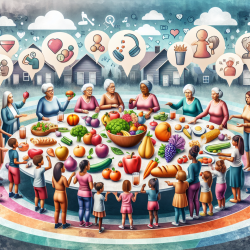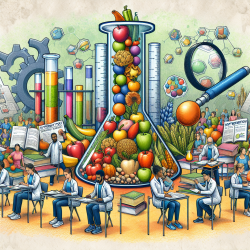Introduction
In the realm of maternal and child nutrition (MCN), the family systems approach is gaining recognition for its potential to enhance program effectiveness. A recent study, "Grandmothers as Change Agents: Developing a Culturally Appropriate Program to Improve Maternal and Child Nutrition in Sierra Leone," highlights the pivotal role grandmothers play in influencing MCN practices. This research, conducted in Sierra Leone, underscores the importance of integrating family dynamics into nutrition programs to achieve better outcomes.
Understanding the Role of Grandmothers
The study conducted focus group discussions with mothers, fathers, and grandmothers in nine communities in Sierra Leone. The findings revealed that grandmothers are the culturally designated advisors and supervisors of women on MCN issues. Mothers, often not autonomous decision-makers, are greatly influenced by grandmothers. This insight is crucial for practitioners aiming to design effective nutrition programs.
Implementing a Family Systems Approach
Practitioners can enhance their skills by adopting a family systems approach in their work. Here are some actionable steps based on the study's findings:
- Incorporate Grandmothers in Program Design: Recognize and affirm the roles of grandmothers as key influencers in MCN. Design programs that actively involve them in decision-making processes.
- Utilize Participatory Methods: Engage grandmothers and other family members in participatory activities to build consensus and promote behavior change.
- Focus on Cultural Appropriateness: Tailor interventions to align with local beliefs and practices, ensuring that they are culturally sensitive and relevant.
Encouraging Further Research
While the study provides valuable insights, further research is needed to explore the effectiveness of grandmother-inclusive approaches in different cultural contexts. Practitioners are encouraged to conduct similar studies in their regions to understand the unique family dynamics at play and adapt their programs accordingly.
Conclusion
The research highlights the need for a paradigm shift in MCN program design, emphasizing the inclusion of grandmothers and other family members. By leveraging the existing cultural roles of grandmothers and strengthening their MCN knowledge and skills, practitioners can create more effective and sustainable nutrition programs.
To read the original research paper, please follow this link: Grandmothers as Change Agents: Developing a Culturally Appropriate Program to Improve Maternal and Child Nutrition in Sierra Leone.










